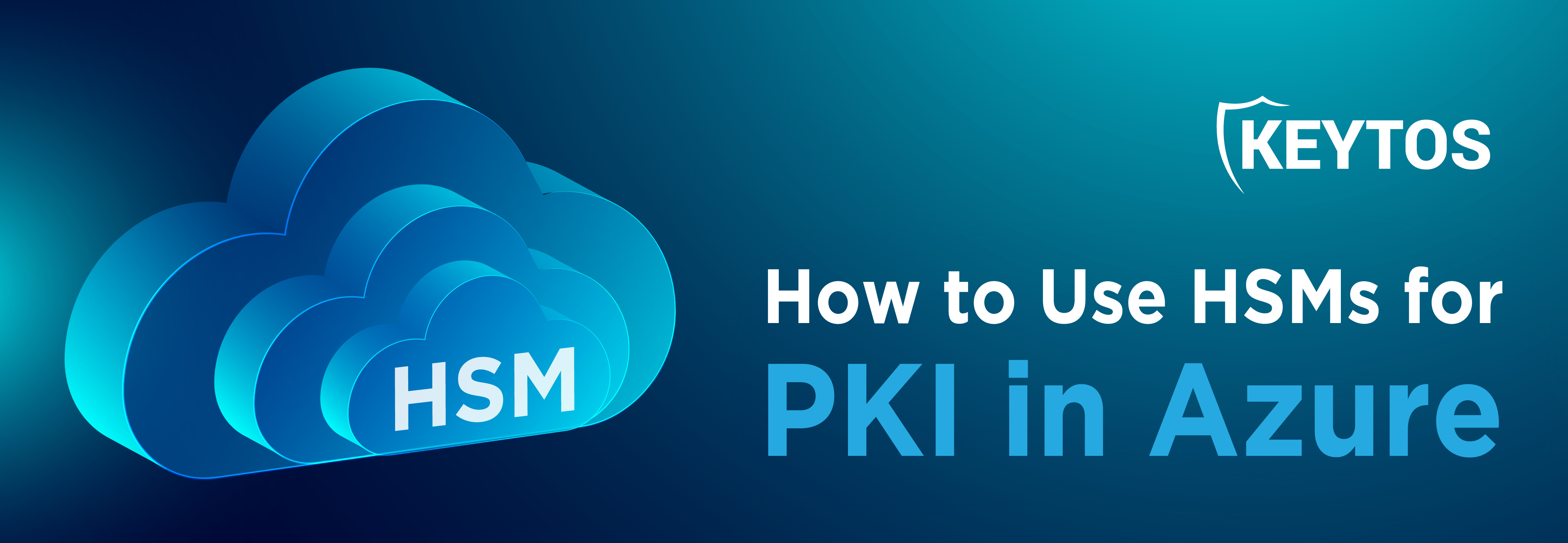
How to Use HSMs for PKI in Azure
Deciding to implement PKI (Public Key Infrastructure) for your organization is a tremendous step in the right direction, but not all certificate authorities are created equal. Adding a Hardware Security Module (HSM) to your PKI is, without question, the most secure way to go about public key infrastructure, and in this post, we’re going to quickly tell you why. Additionally, we’ll provide insight into the way to go about doing so. Let’s dive in.
What Is an HSM?
A Hardware Security Module (HSM) is a physical computing device that safeguards and manages digital keys for strong authentication and provides security. These devices are designed to securely generate, store, and manage the cryptographic keys used for data encryption so that these keys do not leave the device. They can be plugged into a server or networked as standalone appliances. Costs for HSMs vary widely, depending on the specifications needed for the organization’s requirements; prices can range from a few hundred to several thousand dollars. An HSM is essential because it provides a highly secure environment for cryptographic operations, protecting against both physical and logical attacks, which is a critical component for any secure PKI. For a deeper understanding of managing the certificates that HSMs help protect, explore PKI Best Practices.
HSM-Backed PKI for Azure
HSMs add an additional layer of security on top of the already robust characteristics of PKI, but not all PKI solutions offer or support the hardware. Sometimes, the cost is an obstacle, and some people are reluctant to add any hardware to a security stack that is already, and will continue to be, cloud oriented. This reluctance is understandable, yet the added security benefits of incorporating an HSM into your PKI infrastructure are too significant to overlook. Let’s dig in.
While Microsoft offers HSM backed services such as Azure Key Vault or Managed HSMs, they do not offer a KSP for windows allowing you to create a PKI with those services, leaving you with the option of either deploying a dedicated HSM with the expensive cost of $3,000+ a month, or creating and express route connection to your existing HSMs. If you don’t want to manage all that, you can opt for a cloud native PKI such as EZCA.
The Best HSM-Backed Certificate Authority in Azure is EZCA from Keytos
The team at Keytos is comprised of ex-Microsoft PKI and security engineers that have a real passion for providing reasonably priced solutions for absolutely everyone. They have built EZCA to be the absolute gold standard in HSM-backed PKI. How’d they do it? By leveraging their technical prowess to build a solution that effortlessly uses your existing, secure Azure credentials in unison with Key Vault to finally provide the security community with a reasonably priced solution that is without question the most efficient and cost-effective solution for anyone interested in implementing an HSM-backed PKI for their organization. Their goal is to provide the community with a simple and easy-to-use HSM-backed PKI, without the need to break the bank or switch identity providers or suffer through weeks of sales qualification calls.
Why Is EZCA the Best HSM-Backed PKI Solution for Azure?
EZCA leverages your existing infrastructure to streamline the entire PKI process. It simplifies the integration with Azure Key Vault, ensuring that your PKI is backed by the robust security of an HSM without the usual cost or complexity. This approach not only maximizes security but also minimizes the learning curve and deployment time, making it an ideal solution for organizations of all sizes.
How to Get Started with HSM-Backed PKI for Azure
Explore Keytos’ world-renowned documentation for step-by-step instructions on integrating EZCA with your existing Azure environment and infrastructure. Don’t feel like reading and would prefer to speak to a PKI expert? No problem. Schedule a call with the PKI experts at your convenience to start a dialogue about how EZCA can work for your specific use case, without any need to talk to a salesperson or suffer through multiple rounds of sales qualification calls. It’s our here goal to remove the stigma that PKI is hard and are happy to offer advice and expert insights catered to your organization, without any pressure to sign a long contract or being pestered by an entry-level sales “expert” that hardly understands the concept of PKI, let alone how it can be optimized and integrated with Key Vault to ensure the highest level of security. After all, isn’t it better to be safe than sorry?


